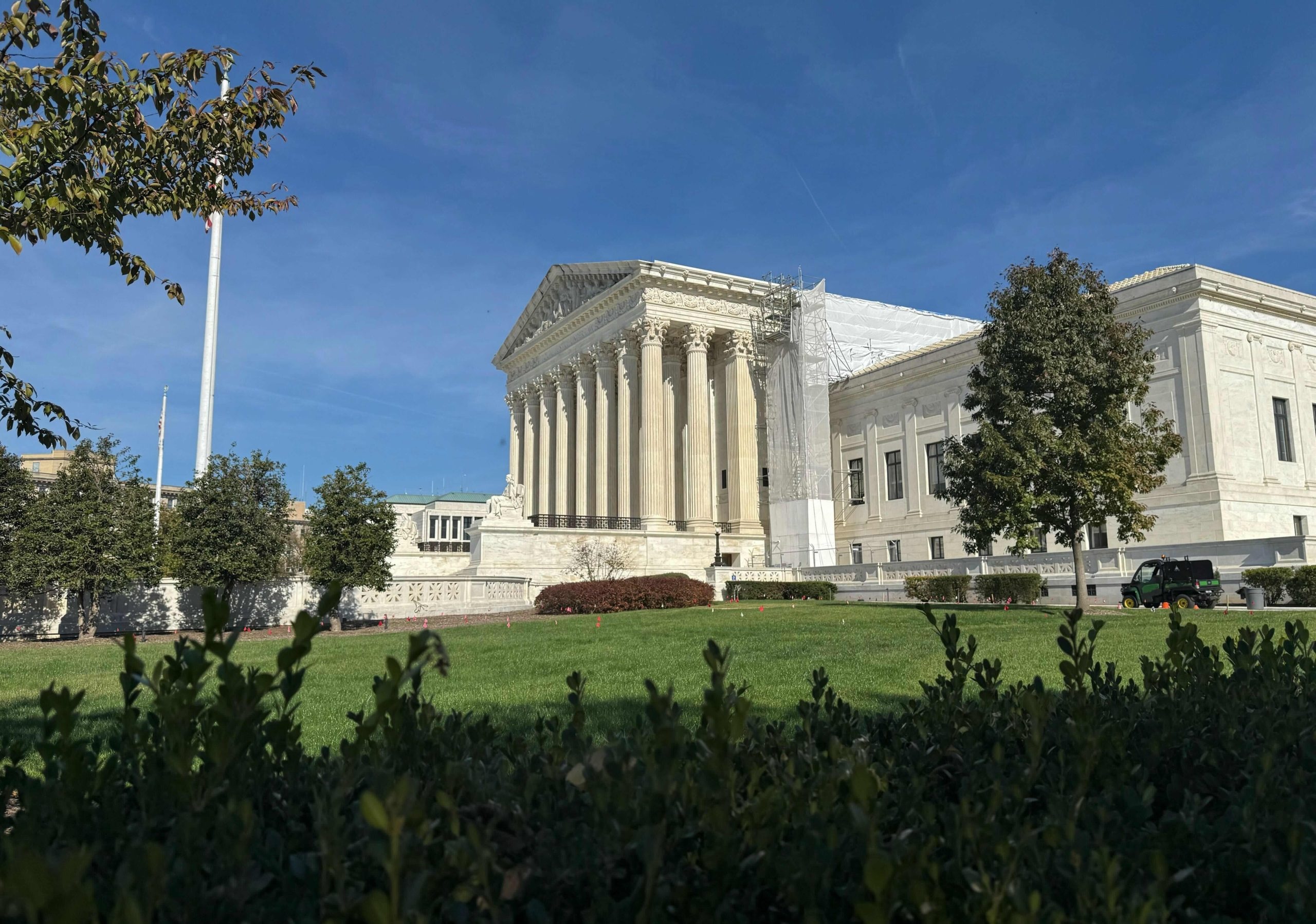Group challenges ruling that potentially weakens the Voting Rights Act


Updated on July 16 at 12:59 pm
A group of plaintiffs challenging North Dakota’s state legislative maps came to the Supreme Court on Tuesday, asking the justices to block a ruling by the U.S. Court of Appeals for the 8th Circuit that could weaken the power of the federal Voting Rights Act. The plaintiffs, which include two Native American tribes and several individual voters, told the justices that the 8th Circuit is the only area of the country “in which private plaintiffs cannot enforce Section 2” of the VRA, which prohibits racial discrimination in voting.
The decision by the court of appeals, along with its ruling in a separate case involving redistricting in Arkansas, the plaintiffs said, “upend sixty years of practice” and “knee-cap Congress’s most important civil rights statute” – something that is “especially harmful to Native Americans and these Plaintiffs in particular” in light of North Dakota’s “long and sad history of official discrimination against Native Americans that persists to this day.”
The plaintiffs went to federal court in 2022 after North Dakota drew a map that eliminated two of the three legislative seats in the northeastern part of the state in which Native American voters “could elect representatives of their choice.” They thus contended that the state’s map diluted the voting strength of Native Americans.
A federal district court in North Dakota agreed and ordered the state to use a map created by the plaintiffs, which led to the election of three Native American legislators in 2024.
North Dakota appealed to the 8th Circuit, which held that private plaintiffs like the ones in this case cannot rely on federal civil rights laws to challenge discrimination under Section 2 of the VRA. This came on the heels of the 8th Circuit’s ruling, in a case out of Arkansas, that private plaintiffs also cannot rely on Section 2 of the VRA to bring a lawsuit alleging discrimination in voting laws.
In their brief at the Supreme Court on Tuesday, the plaintiffs urged the justices to put the 8th Circuit’s decision on hold before it goes into effect on July 17, both because one of the Native American legislators could become ineligible to serve when it does and because of the prospect that it could lead to the use of a “decidedly unlawful” map in the 2026 election.
The plaintiffs contended that the justices are likely to grant the petition for review that they plan to file – an important factor in determining whether to put the 8th Circuit’s decision on hold – because, they wrote, voters who live in the 8th Circuit “now have fewer enforceable rights and protections against racial discrimination in voting than citizens elsewhere in the nation.”
At least two justices have suggested that they may be inclined to agree with the 8th Circuit’s views. In a brief opinion concurring in a 2021 decision upholding two Arizona voting provisions that Democrats and civil rights groups had challenged as disproportionately burdening minority voters, Justice Neil Gorsuch – joined by Justice Clarence Thomas – noted that the Supreme Court had assumed, but had not actually decided, that Section 2 allows lawsuits by private plaintiffs. “Lower courts,” he wrote, “have treated this as an open question.”
The plaintiffs also asked the Supreme Court to issue an administrative stay – that is, to temporarily put the lower court’s ruling on hold to give them time to consider the plaintiffs’ request. The court granted this on July 16. The Court has asked North Dakota to file a response by 5 p.m. on July 22.
Posted in Court News, Emergency appeals and applications
Cases: Turtle Mountain Band of Chippewa Indians v. Howe